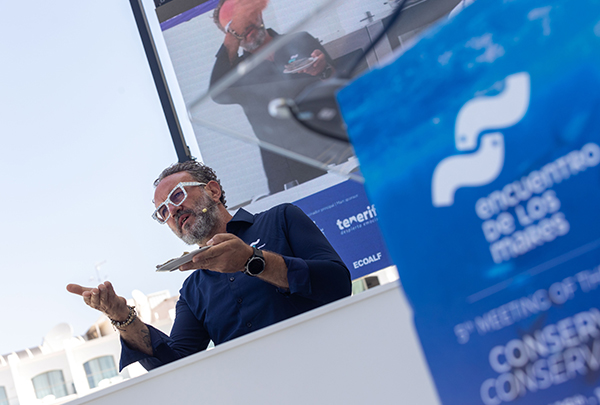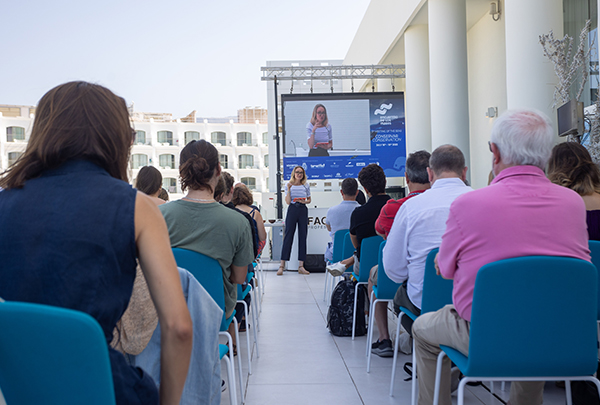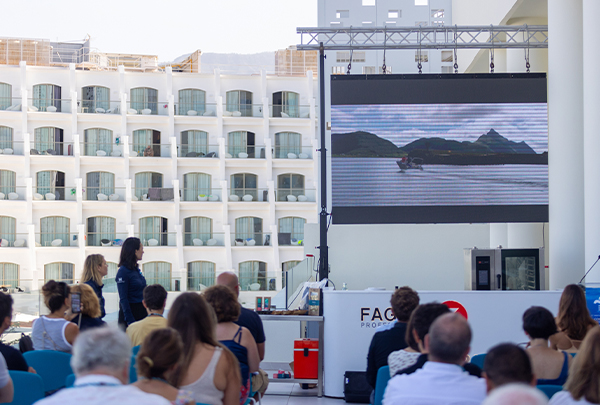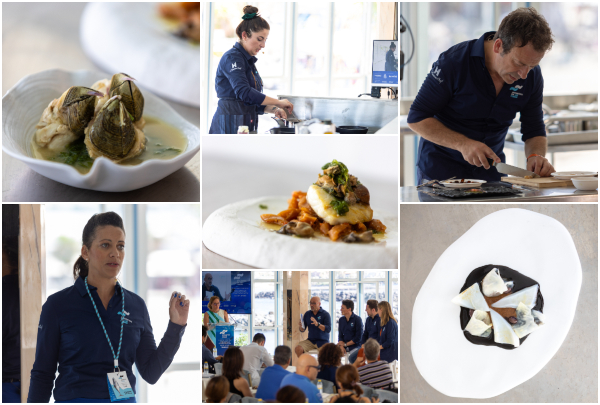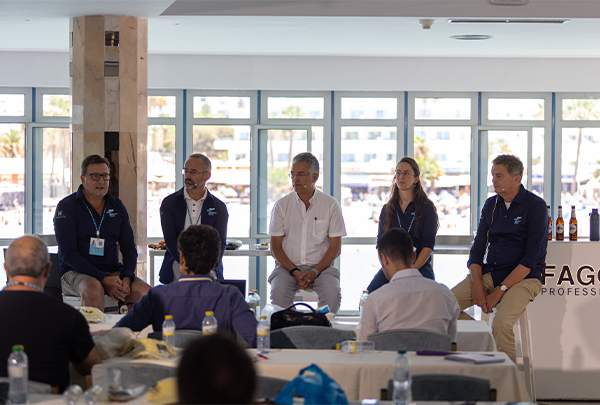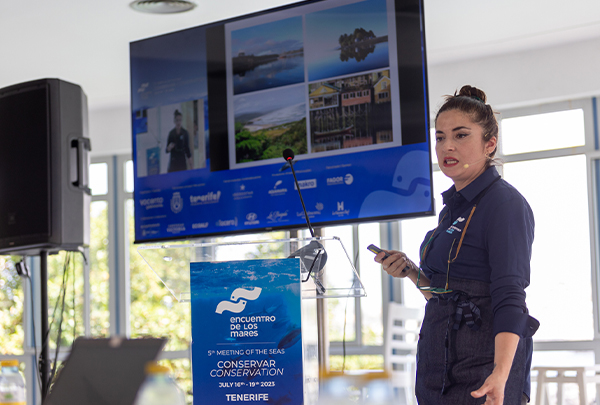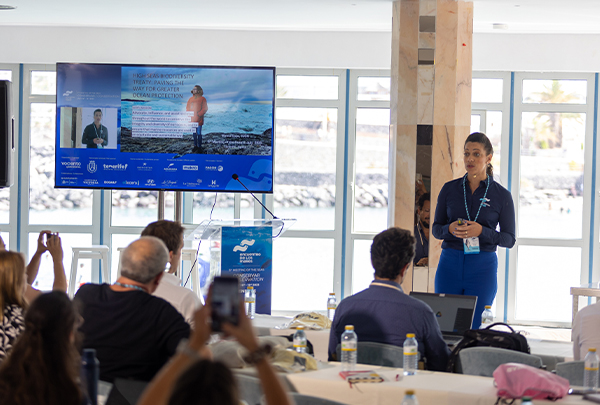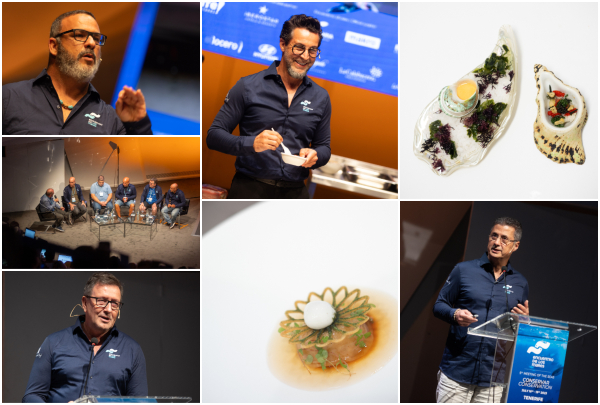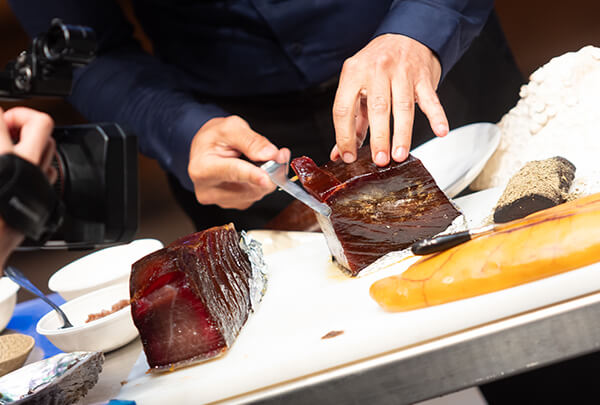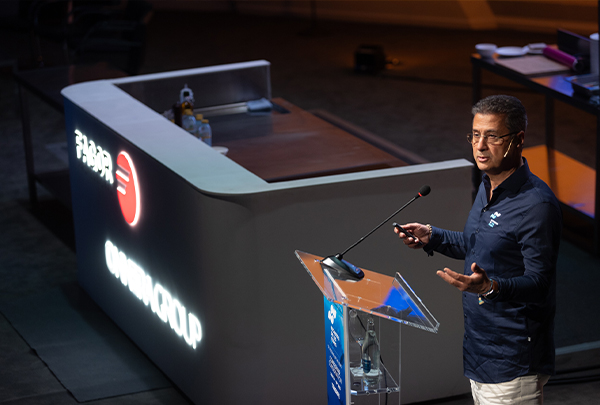News
“Messages about ocean conservation haven't got through, and now we have to talk about regeneration"
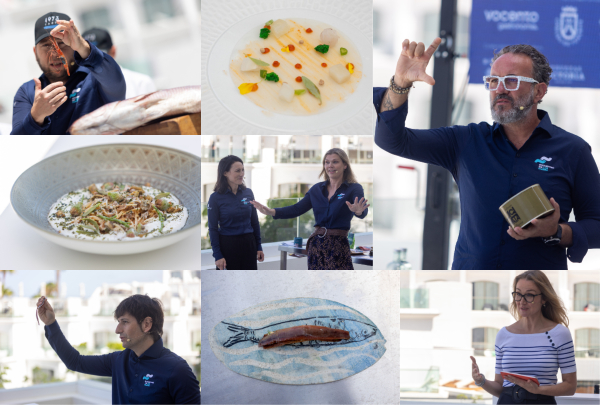
Environmental activist Alexandra Cousteau, who took the 2023 Sartún Award, warns that we have reached the point of no return, and calls for a change of language to reverse all the damage caused to the seas over many years.
The fifth Meeting of the Seas has now come to an end, as the most international and the first to be held on the island of Tenerife, demonstrating that communication between sectors is of the essence in the urgent task of protecting our oceans. Benjamín Lana, head of Vocento's Gastronomy division, thanked all participants for "such a high and sincere level of conversation, well beyond mere environmentalist clichés", and declared "we are not scared of addressing conflictive issues. Quite the contrary - we want to act as a space for debate with a conversation which is truly important". Lana declared himself satisfied with an event featuring 45 participants from nine countries in the various spaces included in the congress, which was followed in streaming format by more than 900 people. An event which also discussed conservation of sea produce, offshore wind power, fish wastage, the search for excellence in artisan fishing, the relations between chefs and fishermen, and the future of blue tourism.
Carlos Duarte, marine biologist and scientific director of the event, agreed and called for "collaboration as a basis to build a desirable future". A task, according to Duarte, “for which we had already laid the foundations at previous congresses, creating those links between sectors, which have now been consolidated at this fifth congress". Cooperation between sectors was also touched on by Valentín González, the Tenerife regional government secretary for the primary sector, who mentioned "the magnificent opportunity provided by this kind of event for collaboration between areas such as the primary sector, the tourist industry and gastronomy. This congress offers us a successful equation, based on gastronomy". A correlation of forces which is crucial "to showcase and consume Tenerife produce. And that is why we intend to continue our collaboration".
Regeneration and not only conservation
The main message on this third day of the congress was conveyed by environmental activist and underwater filmmaker Alexandra Cousteau, the winner of the event's Sartún Award, who warned that if we really want to have healthy oceans, "preserving what we have left is not ambitious enough". Cousteau explained that "since my grandfather began his explorations we've lost over 50% of natural blue capital, and that means that messages to preserve and maintain haven't worked, and have served no purpose. That's why we must change the language, and talk about rebuilding, regenerating, reversing all the damage caused by years of insufficient protection", she insisted.
The upside, according to the activist, is that "there is still time, and that "we must make use of science and nature to do this". To achieve this, Alexandra touched on the necessary involvement of all areas related to the sea and its resources to bring about change, including "chefs and other agents operating in the food chain, who must continue to focus on sustainability, making responsible use of marine resources, and encourage a passion for consumption of those resources". For this reason she was very pleased with the involvement she had witnessed by the gastronomy sector during the congress, "a sector which, even though it had not officially been called upon to work on this kind of regeneration, has been extremely proactive".
Making use of all the sea has to offer
Seaweed play an essential role in recovery of the oceans because, quite apart from the fact that they absorb CO2, they are a source of food with many benefits. To talk about this, Meeting of the Seas was paid a visit from the North Sea by Angelita Erikessen and Tamara Singer. Together they created Lofoten Seaweed on Norway's sheer coastline, a remote, icy cold region which is home to 500 of the world's 12,000 species of seaweed. “Seaweed is the planet's most sustainable foodstuff; it doesn't need any fertiliser, it doesn't have to be watered, and it absorbs large amounts of CO2", they explained as the reasons for their work, "it's also extremely nutritious, especially due to the iodine content, and the umami flavour makes it really tasty”. They wish to boost the consumption of seaweed, and "educate consumers on its marvellous nutritious and organoleptic properties", they declared. And so, there can be no better plan than "working with chefs to organise workshops to teach people how to use the product, and share recipes on Internet and also arrange visits to schools. We want to change the image people have of seaweed, and help them see it as an underwater plantation", they explained.
Seaweed was also a subject of the talk by Cantabria chef Sergio Bastard (La Casona del Judío*, Santander), who regaled the congress with three creations using an original tasty butter made with codium seaweed, a method he uses to preserve many ingredients. “In the Canary Islands we have rules for the quantity and quality of butter, and not only is it a great preservative, but I can also say it's useful in cookery, because I believe it's a product with many benefits, if you don't eat too much of it", he told congress-goers.
Meeting of the Seas' round table focused on food waste, discussed by the Canary Island chefs Borja Marrero (Muxgo, Las Palmas de Gran Canaria) and Juan Carlos Clemente (gastronomy consultant), and food waste activist Fabián León. Fabián pointed out a lack of education in relation to food waste on the part of the public at large. “We don't know how to use the different parts of a product, and in that sense gastronomy and chefs can be of great assistance", he said. The two Canary Islanders agreed, and Juan Carlos Clemente added that it is also important to diversify and "use all kinds of fish, not just the most popular, and make them known". Even "more economic fish have to be reassessed, because sometimes due to their low prices we don't give them the importance they deserve, and we aren't so concerned about throwing away some of their parts", argued the gastronomy adviser. Clemente summed up by remarking that "the most important concern is to treat the product with respect".
This philosophy of using all parts of the product was also taken up during the talk by chef Luigi Pomata (Luigi Pomata, Cagliari, Sardinia), known as 'the red tuna chef', who works with all parts of tuna with respect, because “if you aren't familiar with the produce and the tradition, you can't be a good chef".
Tourism and blue gastronomy
The day's event, the last in this fifth Meeting of the Seas, was completed by a round table on blue tourism, during which a number of experts in the field agreed that "there's still a lot to be done". Eduardo Serrano, partner and managing director at the ESMA, declared that one of the main stumbling blocks was implication and knowledge at all links in the chain, "from entrepreneurs to tourists, and also employees". Serrano regretted that sometimes everything was all talk, with no action. In this regard, Federico Cardona, Coastal Health Strategy Manager EMEA Iberostar, explained that blue tourism should "be ambitious in terms of the targets set to reduce its impact, and that one of its primary goals ought to be the regeneration of the destination". Businessman Higinio Guerra, chairman of the Southern Tenerife Cetacean Conservation Association, added that what was important was "to not have to regenerate, and to focus on protection".
And the 2023 congress finished up with a joint talk by Diego Schattenhofer (Taste 1973, Playa de las Américas) and Braulio Simancas (Silbo Gomero, La Laguna), who showed off one of the products from around Tenerife, the Atlantic sea bass.
A total of 43 speakers from nine different countries took part in this fifth Meeting of the Seas. They all proved able to express their ideas and share knowledge with scientists, chefs and representatives of other sea-related sectors. In 18 talks and five round tables, the congress addressed a number of issues - conservation and regulation of the protection of sea resources, blue tourism, and better use of marine produce. Content enjoyed by more than 900 online congress-goers, who followed the event in streaming format via its digital platform, after registering free of charge.
From six different locations, on land and also at sea, bringing in the local population of Tenerife to a general event on Sunday with samples of the island's gastronomy, Meeting of the Seas thus finishes up its fifth congress, described by Benjamín Lana, head of Vocento's Gastronomy division, as "the best yet".

